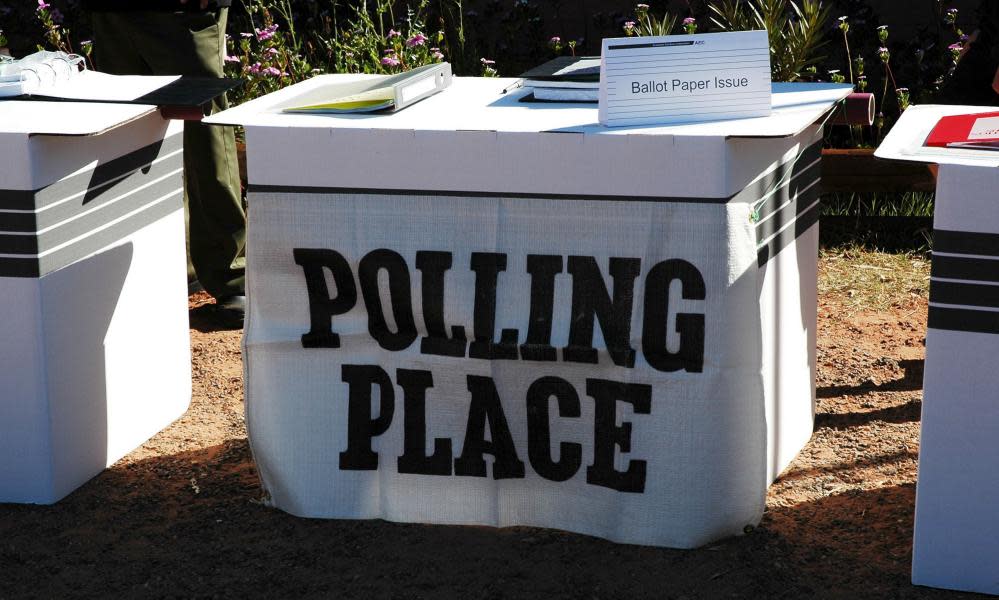Arnhem Land leaders lodge voter suppression complaint against Australian Electoral Commission

Two Indigenous men from Arnhem Land have lodged a complaint with the Human Rights Commission, alleging the Australian Electoral Commission has suppressed votes through indirect discrimination – including strict rules about how people enrol to vote.
Matthew Ryan, the mayor of West Arnhem Regional Council, and Ross Mandi, the chairman of Yalu Aboriginal Corporation in Galiwinku, made the complaint last week alleging that the requirement for people to have a street number and postal address to be listed on the electoral role is discriminatory.
They also said it was discriminatory for the AEC to only provide a polling booth to large Aboriginal communities including Maningrida, Wadeye and Galiwinku for a short number of days, compared with a longer stretch of days for Nhulunbuy, Tennant Creek and Jabiru.
Ryan said the AEC needed to “take rapid action to enrol the third of Indigenous people in the NT who are not able to vote”.
Related: Only 58% of Indigenous Australians are registered to vote. We should be asking why | Paul Daley
The complaint says Arnhem Land residents are not being supported to enrol because the electoral commissioner had powers under the Electoral Act to directly enrol people who do not receive mail to a residential address, but instead gave their postal address as care of a community post office or mail bag, but had chosen not to do so.
It also alleges that the requirement for street numbers for residential addresses to be registered on the roll, and to not allow a lot number to be used instead, was discriminatory.
“I’ve worked on elections for years,” Mandi said. “There’s always people turning up who are not able to vote. If the AEC did its job properly, this could stop right now.”
The AEC said it would be inappropriate to comment on the specifics of a complaint which is before the Human Rights Commission. But it said the enrolment and engagement of Indigenous voters was a “key focus area” for the AEC.
The Indigenous electoral enrolment rate in the Northern Territory is the lowest in the nation at 68.7% – well behind the national average of 78%.
The AEC does have a direct enrolment program, which relies on taking information from other government agencies – state and territory driving licence registries, the taxation office or Centrelink – to identify a person whose name and address can be added to the roll, or to update an enrolled person’s details.
The complaint was made with the support of the Maritime Union of Australia and the United Workers Union.
MUA national Indigenous officer, Thomas Mayor, called on the AEC to urgently change its policies to allow for easier enrolment of people in remote Indigenous communities.
“It is alarming that the AEC has adopted a policy that systematically reduces the voting power of Indigenous people at federal elections – the people who have the direst need to be heard in this country,” he said.

 Yahoo Movies
Yahoo Movies 
